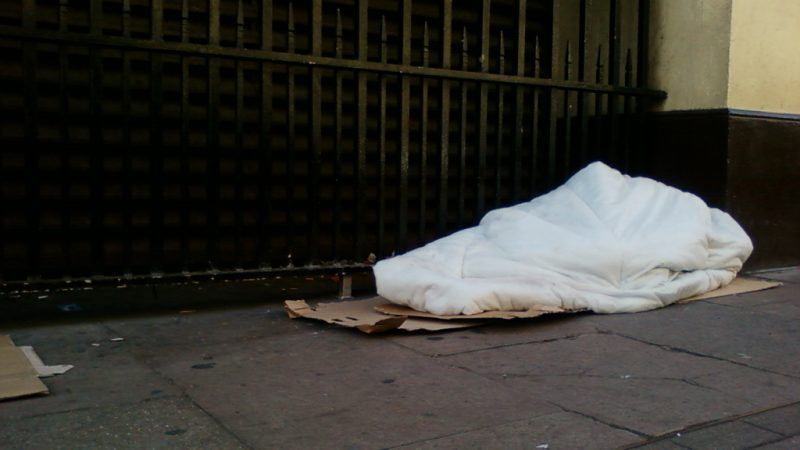If the UK wants to learn how to work towards ending homelessness, they can turn to Finland and their Housing First policy, initially introduced in 2008

By Kerrie Portman
I’ve been homeless three times in my life, two of which were as a Care Leaver. I didn’t have any support and was alone when trying to face homelessness as a young disabled Care Experienced woman. Once when I asked my Local Authority for housing help, I was told I didn’t “deserve” a home. A year later, I spoke to a local cllr who asked me if I’d stayed on friends’ couches and I told her ‘no, I had no friends or family.’ I managed to find a home, but in some ways I never stopped being homeless. The trauma and the things I endured are all still with me, every second of every day. I saw some of the cruellest parts of humanity and that’s not something I can unsee. I am constantly terrified I will lose my home again.
Last month, the government released data showing that, in England alone, there were an estimated 2,447 people sleeping rough on any given night in March 2023. Rough sleeping isn’t the only form of homelessness. The Housing Act 1996 defines someone as legally homeless if they: have no accommodation available to occupy, are at risk of violence or domestic abuse, have accommodation but it is not reasonable for them to continue to occupy it (including accommodation that is unaffordable, overcrowded, unsafe or in poor condition or is a refuge or emergency hostel), have accommodation but cannot secure entry to it, have no legal right to occupy their accommodation or live in a mobile home or houseboat but have no place to put it or live in it. Many homeless people squat, sofa surf or are placed in temporary accommodation by their local authority. English councils helped over 278,000 households to prevent or relieve homelessness between April 2021 and March 2022, which is a 16% increase from the previous year.
According to The Big Issue, three quarters of homeless people reported a physical health problem, 80% reported a mental health issue, 35% had been to A&E in the past six months and 29% had been admitted to hospital. When I was homeless I attempted suicide because I didn’t see any hope of finding a home or things ever getting better. The mental health department at A&E told me that they couldn’t work with me because the issue was that I didn’t have a home and, thus, it was social care’s responsibility. The social care department said that because I’d attempted suicide it was a mental health issue. The hospital discharged me back onto the street with no help because everyone said I was someone else’s problem.
Even from a pragmatic perspective, having homeless people costs the government more than housing people. It’s hard to fully quantify the cost of homelessness because it touches so many different and far reaching areas but Crisis reported that if 40,000 people were prevented from becoming homeless in England for just one year, it would save the public purse £370 million. The cost of one person rough sleeping for 12 months in 2015 was £20,128, whereas the cost of a successful intervention was £1,426. Those who experienced homelessness for three months or more, cost the NHS an average of £4,298 per person, cost mental health services an average of £2,099 per person and an average of £11,991 per person per contact with the criminal justice system.
If the UK wants to learn how to work towards ending homelessness, they can turn to Finland and their Housing First policy, initially introduced in 2008. This places emphasis on finding a home as the first step, and then looking at the reasons that led to homelessness. This early intervention was found to reduce both repeated and long-term homelessness. Their three main principles are: 1) understanding of an ethical duty to provide a decent standard of living for homeless people, 2) both national legislation and international agreements requiring Finnish public authorities to address homelessness and 3) understanding that reducing homelessness is an economically rational endeavour, reducing health and social care costs. The specifics include providing the homeless people they support with their own home with their own rental contract, converting hostels into supported housing units, separating housing and other services, providing individual services based on specific needs, allocating affordable housing for people at risk of homelessness to prevent it and multidisciplinary work with local level networks.
The UK, and other countries should implement similar strategies to reduce our homeless population, whether because safe housing is a basic human need that no person should suffer without, or more pessimistically because it will save money. There is no excuse for the sorry state of affairs so many people suffer through in Britain today.
Left Foot Forward doesn't have the backing of big business or billionaires. We rely on the kind and generous support of ordinary people like you.
You can support hard-hitting journalism that holds the right to account, provides a forum for debate among progressives, and covers the stories the rest of the media ignore. Donate today.



